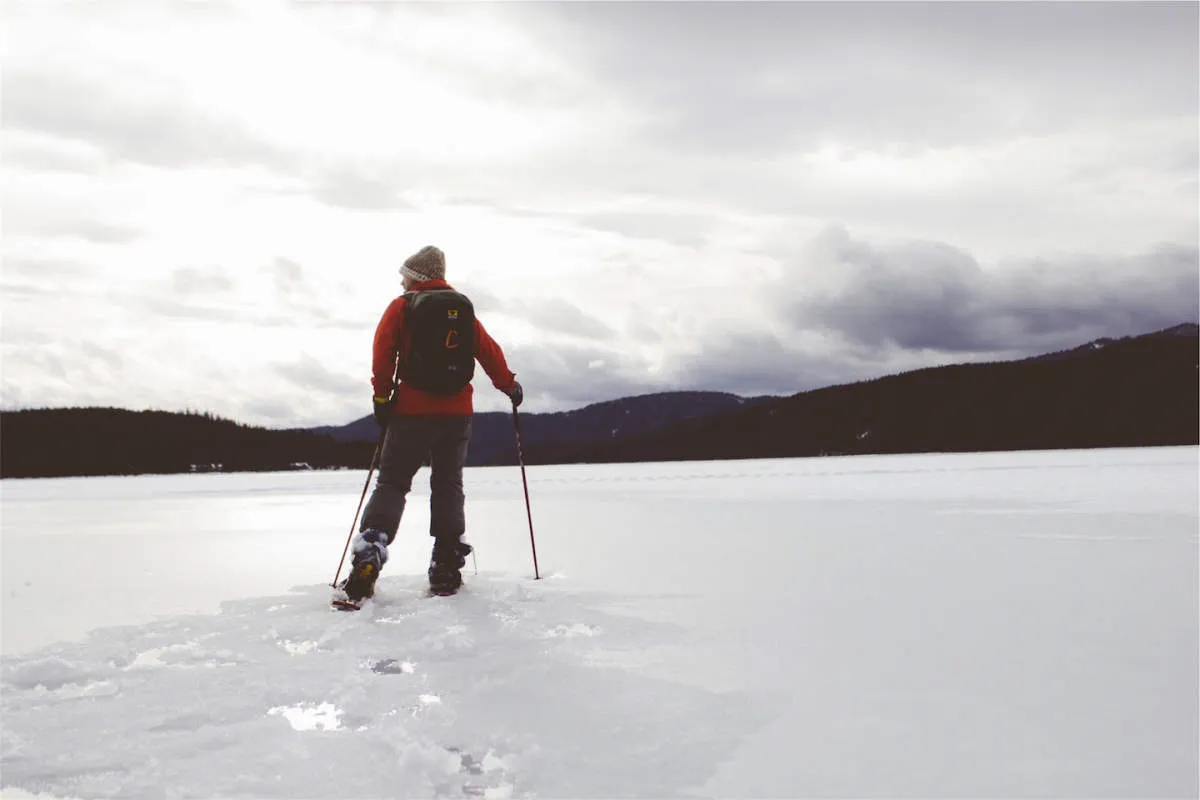Adapting to the Canadian Climate: Winter Survival Tips for Students
Are you a student in Canada struggling to adapt to the harsh winters? Look no further! In this article, we’ve got you covered with essential winter survival tips to help you navigate through the freezing temperatures and snowy conditions. From dressing warmly to staying active, these tips will ensure you have a comfortable winter experience as a student in Canada.
Dressing in Layers and Appropriate Winter Gear
When it comes to surviving the Canadian winter, dressing in layers and having the right gear is crucial. The cold temperatures and snowy conditions can be challenging, but with the right approach, you can stay warm and comfortable throughout the season. Here are some tips to help you adapt to the Canadian climate:
Layering is key
One of the most effective ways to stay warm is by layering your clothing. Start with a moisture-wicking base layer, such as thermal underwear, to keep sweat away from your body. Next, add a insulating middle layer, like a fleece or down jacket, to provide extra warmth. Finally, top it off with a waterproof and wind-resistant outer layer to keep you protected from the elements.
Invest in proper winter gear
Having the right winter gear can make all the difference. Invest in a good pair of insulated boots that are waterproof and have good traction. You’ll also need a warm hat, gloves or mittens, and a scarf or neck gaiter to protect your extremities. Don’t forget to wear thick socks to keep your feet cozy.
Don’t underestimate the importance of accessories
In addition to your main winter gear, there are a few accessories that can further enhance your comfort. Consider wearing thermal socks, hand warmers, or toe warmers for extra warmth. A good pair of sunglasses or goggles can also protect your eyes from the glare of the sun reflecting off the snow.
Be prepared for changing weather
Canadian winters can be unpredictable, so it’s important to be prepared for sudden changes in weather. Always check the forecast before heading out and adjust your clothing accordingly. Carry an extra layer or two in case the temperatures drop unexpectedly. It’s better to be over-prepared than under-prepared.
Stay active and move around
Physical activity generates body heat, so don’t let the cold weather keep you indoors. Engage in winter activities like ice skating or snowshoeing to keep yourself warm. Even a brisk walk can help you stay comfortable by increasing your blood circulation.
Staying Active and Engaging in Winter Activities

Winter in Canada can be a challenging season, especially for international students who may not be accustomed to the cold climate. However, with the right mindset and some helpful tips, you can make the most of this winter wonderland. One key aspect of adapting to the Canadian climate is staying active and engaging in winter activities. Not only will this help you stay physically fit, but it will also allow you to embrace and enjoy the unique experiences that Canadian winters offer.
1. Embrace winter sports
Canada is known for its love of winter sports, so why not take advantage of it? Try your hand at ice hockey, skiing, snowboarding, or ice skating. Many universities have sports facilities that offer equipment rentals and lessons for beginners. Join a sports club or team to meet fellow students who share your interests and make the most of the winter season.
2. Explore winter hiking trails
Winter is a magical time to explore nature. Put on your warmest winter gear and discover the beauty of the snowy landscapes. Many Canadian cities have designated winter hiking trails that are accessible even during the colder months. Don’t forget to bring a camera to capture the stunning views along the way!
3. Participate in winter festivals
Winter festivals are a big part of Canadian culture. These festive gatherings celebrate the season with ice sculptures, fireworks, live music, and more. Attend local winter festivals in your area to immerse yourself in the Canadian winter spirit and create lasting memories.
4. Try indoor activities
If you prefer to stay indoors, there are still plenty of engaging activities to keep you entertained during the winter months. Join a gym or fitness class to stay active and beat the winter blues. Explore museums, art galleries, and libraries to enrich your knowledge and stimulate your mind.
5. Volunteer in winter-related initiatives
Winter is a time when many Canadians come together to support their communities. Look for volunteer opportunities related to winter initiatives, such as assisting at a local shelter or community center. Not only will you give back to the community, but you will also gain a sense of fulfillment and build connections with fellow volunteers.
With these tips in mind, you can adapt to the Canadian climate and make the most of your winter experience as a student. So, embrace the cold, stay active, and engage in winter activities to truly enjoy all that this beautiful season has to offer.
Maintaining Mental and Physical Well-being
As a student adapting to the Canadian climate, it is essential to prioritize your well-being in order to thrive during winter. The colder temperatures and shorter daylight hours can often have an impact on both your mental and physical health. To help you navigate through the winter season, here are some tips to maintain your mental and physical well-being:
1. Stay Active
Engaging in regular physical activity is crucial for both your physical and mental well-being. Aim to incorporate exercise into your daily routine, whether it is indoors or outdoors. Consider joining a local gym, participating in winter sports, or simply going for a walk or run in your neighborhood.
2. Eat a Balanced Diet
During the winter months, it’s important to fuel your body with nutritious foods to support your immune system and overall health. Include a variety of fruits, vegetables, whole grains, and lean proteins in your meals. Additionally, stay hydrated by drinking plenty of water throughout the day.
3. Get Sufficient Sleep
Proper sleep is essential for your well-being, as it helps with concentration, mood regulation, and overall cognitive function. Aim for seven to eight hours of sleep each night and establish a consistent bedtime routine to ensure a good night’s rest.
4. Maintain Social Connections
Winter can sometimes lead to feelings of isolation, so it’s crucial to maintain social connections. Take the initiative to meet up with friends or classmates, join clubs or organizations, or participate in social activities that interest you. Engaging with others can help alleviate stress and boost your mood.
5. Practice Self-Care
Make time for self-care activities that promote relaxation and stress relief. This could include practicing mindfulness or meditation, engaging in hobbies you enjoy, reading books, taking warm baths, or listening to calming music. Prioritizing self-care helps in maintaining a healthy mindset.
6. Dress Appropriately for the Weather
Ensure you are properly dressed for the winter weather to avoid discomfort and potential health issues. Layer your clothing to stay warm and protect yourself from the cold. Don’t forget to wear a hat, gloves, scarf, and waterproof boots when necessary.
7. Seek Support if Needed
If you find yourself struggling with your mental or physical well-being during the winter months, don’t hesitate to seek support. Reach out to your student services or counseling center on campus, or consider talking to a medical professional who can provide guidance and assistance.
By incorporating these tips into your winter routine, you will be better equipped to maintain your mental and physical well-being as a student in Canada. Remember to prioritize self-care, stay connected, and seek assistance when needed. Wishing you a healthy and enjoyable winter season!

Posting Komentar untuk "Adapting to the Canadian Climate: Winter Survival Tips for Students"
Gambar ataupun video yang ada di situs ini terkadang berasal dari berbagai sumber media lain. Hak Cipta sepenuhnya dipegang oleh sumber tersebut.